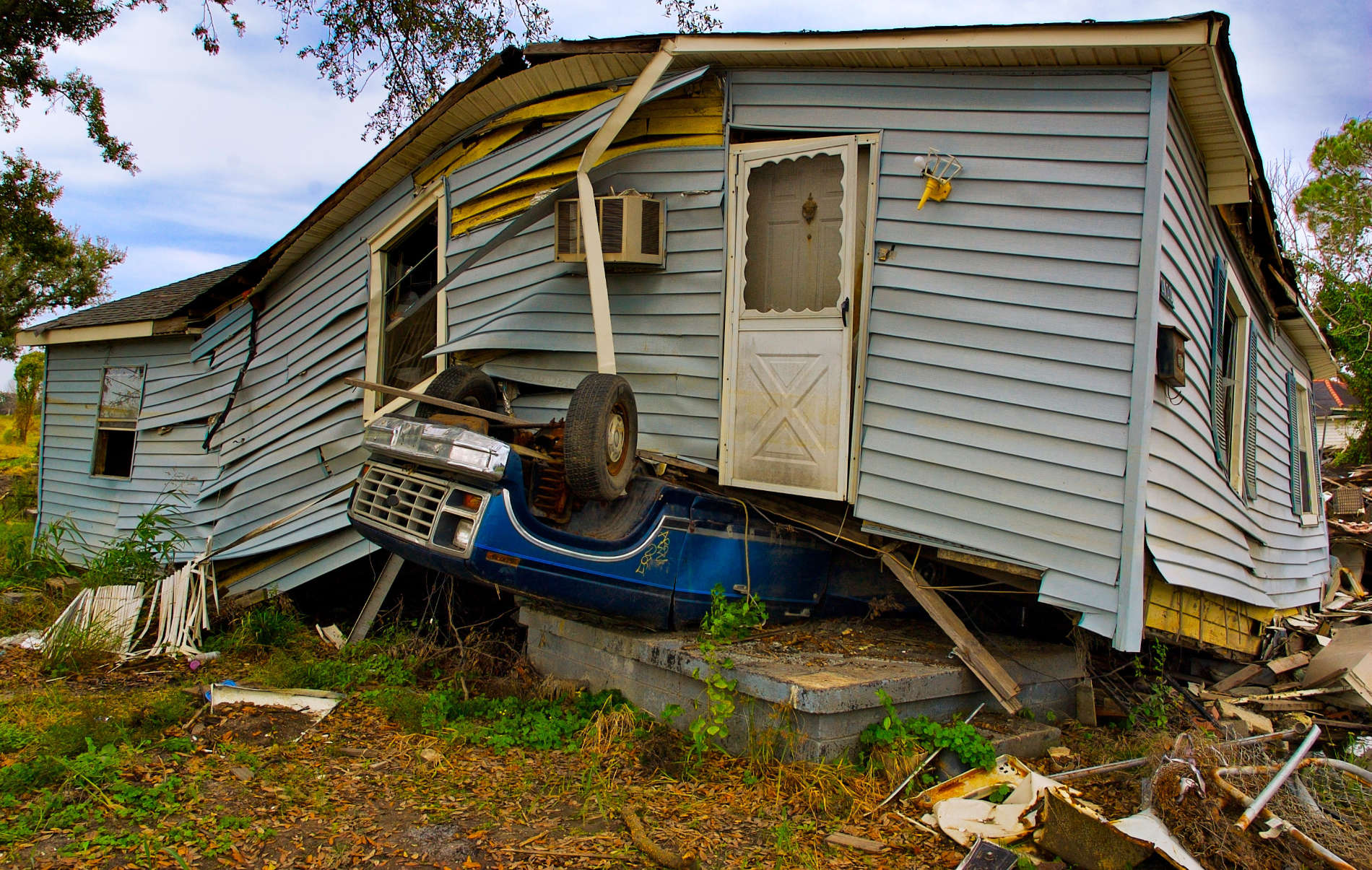
“The unexpected blow lands heaviest.”
SENECA
Welcome to our October Newsletter
We have just got home from London, so today’s newsletter will be mainly about travel. Our original plan for the trip started with a Qantas return flight from Brisbane to Los Angeles to visit the grandkids, but the travel agent pointed out it would be no dearer to continue to London from Los Angeles and then fly home with Emirates. It was too good to resist!
 Photo by Ross Parmly on Unsplash
Photo by Ross Parmly on Unsplash
There were some challenges, though. The first was travel insurance – once you turn 80 the options shrink. But I duly did my research – using Choice – and opted for Medibank. The process involved a simple phone call, and I did not get the usual message about “receiving an unusually high volume of calls” – their message was, ‘Your place in the queue is number two.’ I chose the basic policy because my main requirement was cover for unlimited medical expenses if a major health incident occurred. The cost was $933. It was interesting that once you get to 80 you cannot buy 12 months of cover via Medibank, you have to pay a premium for each trip.
The next challenge is always travel finance. Experience has taught me to carry more than one card in case one gets stolen or stopped, which happened to us on our last trip to America. I opted for a combination of the Latitude Credit Card and the ING Orange Everyday Visa debit card, plus an American Express card for backup. The debit card is useful if you need to go to an ATM for cash, but I haven’t needed to use cash in the past five years. Everything now is touch and swipe.

It’s recommended that you advise the credit card issuer if you’re travelling overseas. This was easy with ING: their app has a button that lets you advise your dates of travel and your destination. But it was a chore with Latitude because their website says to use their app, but there’s no place on their app to do it. I contacted Latitude via social media, and they told me that you no longer need to tell them you’re going overseas: they will know the moment you start making overseas transactions and will get in touch if they seem suspicious.
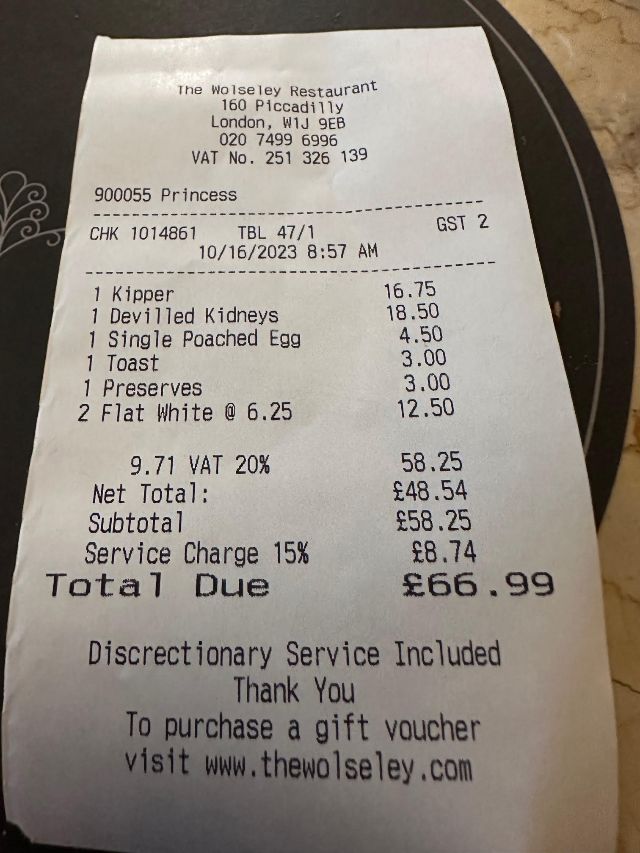
I like both these cards because there is no annual fee and their exchange rates are the best in the business (at least, so they claim – it’s a complex thing to verify). The debit card is good because you can’t overspend, and the credit card is also useful because you’ve got the extra money via your credit card limit if you get an unexpected expense. When we arrived in Los Angeles, both cards immediately worked without a hitch. Each has a great app that shows transactions in real time, so you can cry in horror when you see that the cup of coffee you just enjoyed cost AU$12 including tax, tips and conversion.
When we arrived in London, I put the two cards to the ultimate test. The moment we checked in at the hotel, I took out the Latitude card and the ING card and asked the hotel to charge £1000 to each card. Both transactions were instantaneous – there was no pin needed and no signature, and within a minute, I could see the Australian equivalent of both transactions on my phone. The difference was minuscule.
In fact, both cards passed all my tests with flying colours. The ING card has a slight advantage as a deposit to it from your bank account normally shows within five minutes; Latitude seems to take 24 hours.
I learnt more about commission when travelling. I’ve mentioned before that ING refund the commission, whereas cards such as Virgin charge commission. ING are transparent – they show the commission charge for each transaction and then the refund amount. I reckon that came to over $400 on this trip. Just as a check I didn’t one transaction on Virgin. Their statement says, ‘Foreign Amount U.S. Dollar 135.35 AUD 219.80 includes International Transaction fee AUD 7.02.’
The American Express card’s only purpose is to act as a guarantee for check-in, since most hotels require you to leave a card with them when you check in, to cover possible expenses. The hotels then add a notional sum for contingencies. I’ve been caught with this before: the card may be blocked for days, and if it has a small limit, it can leave you short. This leaves me free to use the other cards without fear of them being blocked.
Travel is so much easier now thanks to e-passports. It took less than 15 minutes at Los Angeles Airport to get from touchdown to the baggage carousel and it was just as quick at Heathrow. Those long queues at passport control appear to be a thing of the past. Let’s hope so.
Self-driving cars
I have long been sceptical of self-driving cars and having had Teslas for four years, I think I know what I’m talking about. I have experienced my Tesla stopping on a freeway because it picked up traffic lights on the road underneath the freeway – I’ve seen it stop at red arrows even though the green light ahead was fine. I’ve seen it ignore speed signs and red lights and slow down in a major road because some months before there had been a 40 Km/h limit.
But when I was in Los Angeles, I had a total change of heart. My son James bought a Tesla Y last month and got three months of full self-driving as part of the package. He lives in Westchester, which is near Los Angeles Airport.
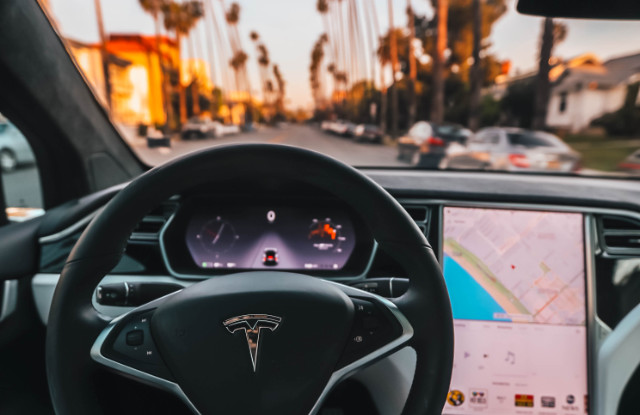 Image by Roberto Nickson on Unsplash
Image by Roberto Nickson on Unsplash
We got the car to take us to Manhattan Beach and then bring us home again. I was astounded. All he had to do was enter the destination and the car drove us with no assistance from the driver. Manhattan Beach has very steep, narrow streets going down towards the water. The car navigated them effortlessly, including turns.
When it approached a turn to a new road, it put the indicators on, moved to the right lane, and carefully crossed watching for cars coming. In California, you can turn right on a red light if it’s safe. James’s car came to a corner where many cars were turning right ignoring a sign that read ‘no right turn 3 pm to 6 pm’. The time was 5.55 pm. The car refused to move.
The car stopped at each stop sign near James’s home and then slowly eased itself forward while it checked there were no cars coming. It was faultless.
This is the Beta version, and I doubt it’s available in Australia – but think what it will be like in a couple of years.
New Edition of Downsizing Made Simple
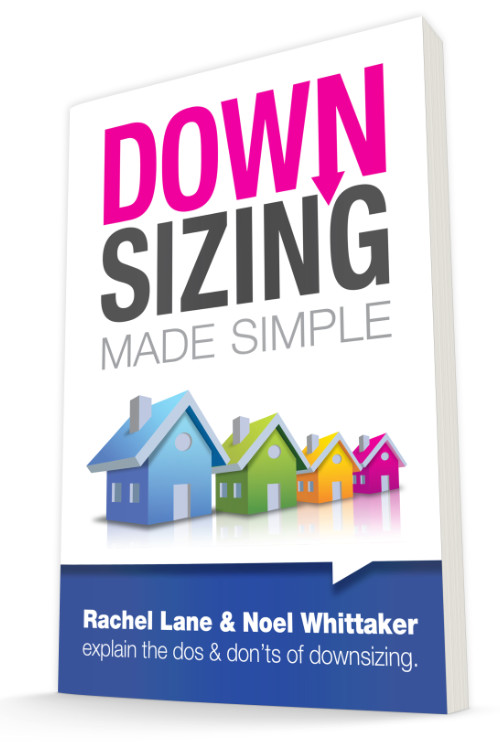 Rachel Lane and I are about to launch the new edition of Downsizing Made Simple. The new edition covers even more downsizing options, more real-life case studies and more details about the care you can get at home. It is a sturdy 356 pages of valuable information.
Rachel Lane and I are about to launch the new edition of Downsizing Made Simple. The new edition covers even more downsizing options, more real-life case studies and more details about the care you can get at home. It is a sturdy 356 pages of valuable information.
It is also supported with calculators, checklists and exercises through the website: downsizingmadesimple.com.au
Here is an extract.
The Who, What, Where and Why of Downsizing
You may have spent years and a significant amount of money making your current home your ‘forever home’, so thinking about downsizing can be emotional. It helps to offset any sadness about leaving with excitement about your new home and the happy times to come. Like any big decision, getting your downsizing decision right is going to take some research. Here are some exercises to help you make your next move your best move.
Know your Why?
Understanding why you want to downsize is a crucial first step. Knowing the things you want to leave behind, those you want to keep and those you want to change can help you understand the driving force behind your decision. People decide to downsize for a variety of reasons; some want a ‘sea change’ or a ‘tree change’ – a different lifestyle. Many want a more manageable, low-maintenance home, while others are motivated by proximity to family and friends and social connection.

There are also often financial motivations for downsizing: paying off debt, freeing up equity to invest or spend, reducing home maintenance costs and having lower property taxes and utility bills.
The combined outcome can give you more money and time to spend doing the things you love.
Work out Where
Where you live affects how you live and it’s something you can’t change without moving again. So, think about the people and places you want to be close to (or far away from). Whether it is family or friends, the beach or a favourite club, identifying the people and places that you want to be close to can help you narrow down where to downsize to. Don’t forget to take into consideration what you don’t want around you. For example, if you don’t like noise then you may want to stay further away from places where people gather. If you’re considering a move across state lines and anticipate frequent visitors, proximity to an airport could be a practical consideration.

Consider the accommodation itself, taking into account the spaces you’ll need – a second bedroom if one person snores, a room for regular visitors, an outdoor space to enjoy your morning coffee. Think about how you will live in the space.
While you may be fighting fit now, it’s wise to contemplate your future needs, especially if your plan is to stay in your new home long term. Ask yourself, ‘What happens if I need care?’ Modern homes, including granny flats and those within retirement communities, are often designed with future care in mind. Examine the home for potential access challenges, such as narrow halls and doorways and cramped bathrooms.
Few people plan to spend their days in an armchair watching television, but if you don’t plan anything else, that’s what you can find yourself doing. So when you’re thinking where to downsize to, ask yourself, ‘How will I spend my time?’ If you are thinking about moving into a retirement community, there is normally an events calendar; grab a copy and circle the things that interest you.
Understand What you are signing
No matter what form your new home takes – whether it’s a freehold, strata title, leasehold, licence or a granny flat interest – you will need to sign a contract. Your contract spells out your rights, responsibilities and costs. Your job is to ensure that you understand it and that it has a fair balance of these three elements.
Of all the downsizing options, granny flats can be particularly complex as they involve family, are not necessarily on commercial terms and if the arrangement goes wrong the whole family can be affected.
Crunch the Numbers
While the purchase price of your new home may be obvious, there’s much more to consider when it comes to the cost of your new home.
In retirement communities, exit fees can be complex. They typically include a Deferred Management Fee (DMF) as a percentage of either your purchase price or future sale price and there can be shared capital gains or losses with the village operator, along with potential expenses for renovations, marketing and selling fees.

In freehold or strata properties, you will need to factor in stamp duty, owners’ corporation fees and the potential for special levies. While granny flat arrangements are typically with family, that doesn’t mean they are free. There is a simple exercise that I call the ‘ingoing, ongoing and outgoing’ that you can use to work out how much you will pay upfront, while you live there and when you leave.
In most granny flat arrangements, you don’t get any of the amount you have paid back. In some cases, because of state-based laws, you may actually need to pay to have your granny flat removed and the landscaping reinstated after you leave.
Armed with the knowledge of what your new home is going to cost you can get a clearer view of the bigger financial picture. How much money will you have to invest or spend, how much Age pension (and other benefits) you can receive, your cash flow, and in the longer term your financial position should the need for aged care arise. The Who, Where and Why of your downsizing decisions are just as important as the contract you sign and its associated costs. Ultimately, getting good ‘bang for your buck’ from your downsizing decision often comes down to how you invest your time and who you spend it with.
Downsizing Made Simple is available to pre-order online from downsizingmadesimple.com.au – I commend it to you as an invaluable resource.
From the mailbox

“I have just finished reading your wonderful book Retirement Made Simple. It is packed full of useful information. I’m still a decade or so from retiring but I got so much out of your book. So thank you so very much.
Incidentally, I especially enjoyed the final chapter on Living it Up and the section on Better Aging. This was my favourite part of the book. I have filled a notebook with all the tips I got from your book, both on finances and living better.
I strongly agree with your philosophy on aging. In fact, I’m convinced I’m in my prime!
I also loved your simple-to-understand book on Superannuation. You’ve put me on the path to a more financially comfortable retirement. Having come out of a divorce with a greatly reduced financial position I was able to take many of the ideas in your book to help set myself up for the future. Thank you.”
And finally
‘Literally’ true…but is it?
‘Many of the prisons here are literally bursting at the seams.’
Michael Brissenden on 7.30 Report. (30 December)
‘This is literally the stuff dreams are made of.’
Paul Collingwood on England’s win in the Ashes.
‘She uses two boys, one hour on and one off, and literally chews them up and spits them out’.
Sam Smith on Caroline Wozniacki’s tennis practice sessions.
‘I was literally rooted to the spot.’
Caroline Dean on Conversations with Richard Fidler ABC Radio. (15 June 2017).
‘She literally melted out there.’
Jason Richardson on Kristina Mladenovic retiring from Sydney International tennis tournament. (8 January 2018).

‘She literally hasn’t looked back since then.’
Renae Stubbs on the resurgence of Caroline Wozniacki after saving match point and winning at the previous US Open tournament. (20 January 2018).
‘The gambling lobby literally has politicians in the palm of its hand.’
Tim Costello on the ‘Everest’ horse race being promoted on the Opera House. (9 October 2018.)
‘It’s literally bowled me over.’
Gladys Berejiklian talking about how people came together to assist. (Sunday 22 December 2019)
‘He’s literally caught with his tail between his legs.’
Tasneem Chopra on The Drum (Thursday13 Feb 2020)
‘We’re living under the Sword of Damocles, literally.’
Joe Haddock, resident of Great Mackerel Beach on their house being in danger from a rockslide (ABC News 21 Feb 2021).
‘Twiggy Forrest literally puts his money where his mouth is.’
Joe Hildebrand Paul Murray show. (24 Feb 2021)
‘We’re literally cutting off our nose to spite our face.’
Richard Marles at the Press Club in reference to the outcome should we not maintain an R and D relationship with China. (24 March 2021)
‘India is literally gasping for oxygen.’
Greg Hunt on the evening news, around 27 April 2021.
‘My heart is literally in my mouth.’
Contestant Dan on MasterChef. (10 May 2021)
While some players are falling away ‘others are literally catching fire,’
Alison Whitaker, commentating during the final round of the Olympic golf for men. (1 August 2021)
’He literally leaves everything out on the track.’
Jason Richardson speaking of Steven Solomon at Tokyo Olympics. (2 August 2021)
‘Operators are literally at the end of their tether.’
Queensland Tourism Industry Council CEO, Daniel Gschwind on the need to open borders, on 2GB with Joe Hildebrand. (23 September 2021)
‘She’s literally dropped from the roof to win.’
Race caller Matt Hill describing Chaillot’s last to first win at Sandown. (25 September 2021)
‘…this is a last chance saloon, literally.’
Prince Charles on the climate change summit in Glasgow. (11 October 2021)
‘She was literally born in the snow.’
Jason Richardson on Network 7 talking about Jakara Anthony winning the Women’s Mogul, Winter Olympics Beijing. (6 February 2022)
‘The other horse that’s literally airborne is Quietly Discreet.’
Racecaller Brett Davis assessing the chances of horses at Murray Bridge on sports radio. (5 March 2022)
‘We were literally staring into the economic abyss.’
Treasurer Josh Frydenberg talking about the Covid crisis during a press conference. (12 April 2022)
‘She’s literally flying.’
Adelaide racecaller Brett Davis tipping the inform sprinter Comica on Sports radio. (7 May 2022)
After that, ‘the family literally imploded into a million pieces.’
Dr Phil on an episode aired on Channel 10. (26 May 2023)
‘She is literally jumping out of her skin!’
Andy Park ABC radio Drive host introducing a Matildas fan to report on the opening game. (21 July 2023)
‘You literally blew me away!’
Jessica Mauboy to a contestant on the Voice. (6 August 2023)
‘Your performance literally tore the roof off this place.’
Jason Derulo, Voice judge to contestant. (3 September 2023)
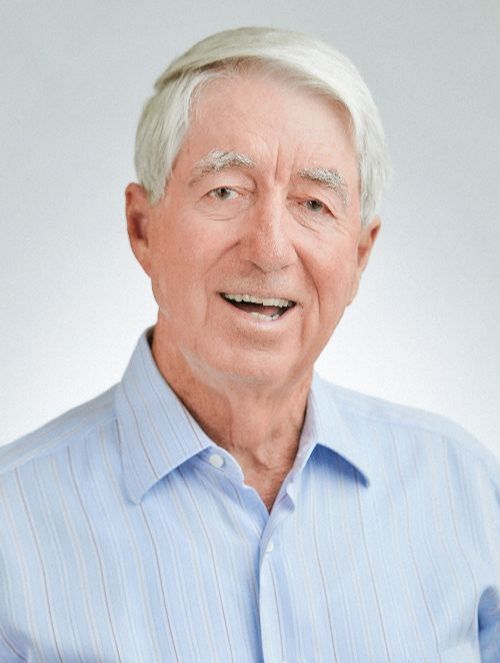 I hope you have enjoyed the latest edition of Noel News.
I hope you have enjoyed the latest edition of Noel News.
Thanks for all your kind comments. Please continue to send feedback through; it’s always appreciated and helps us to improve the newsletter.
And don’t forget you’ll get more regular communications from me if you follow me on X – @NoelWhittaker.
Noel Whittaker
